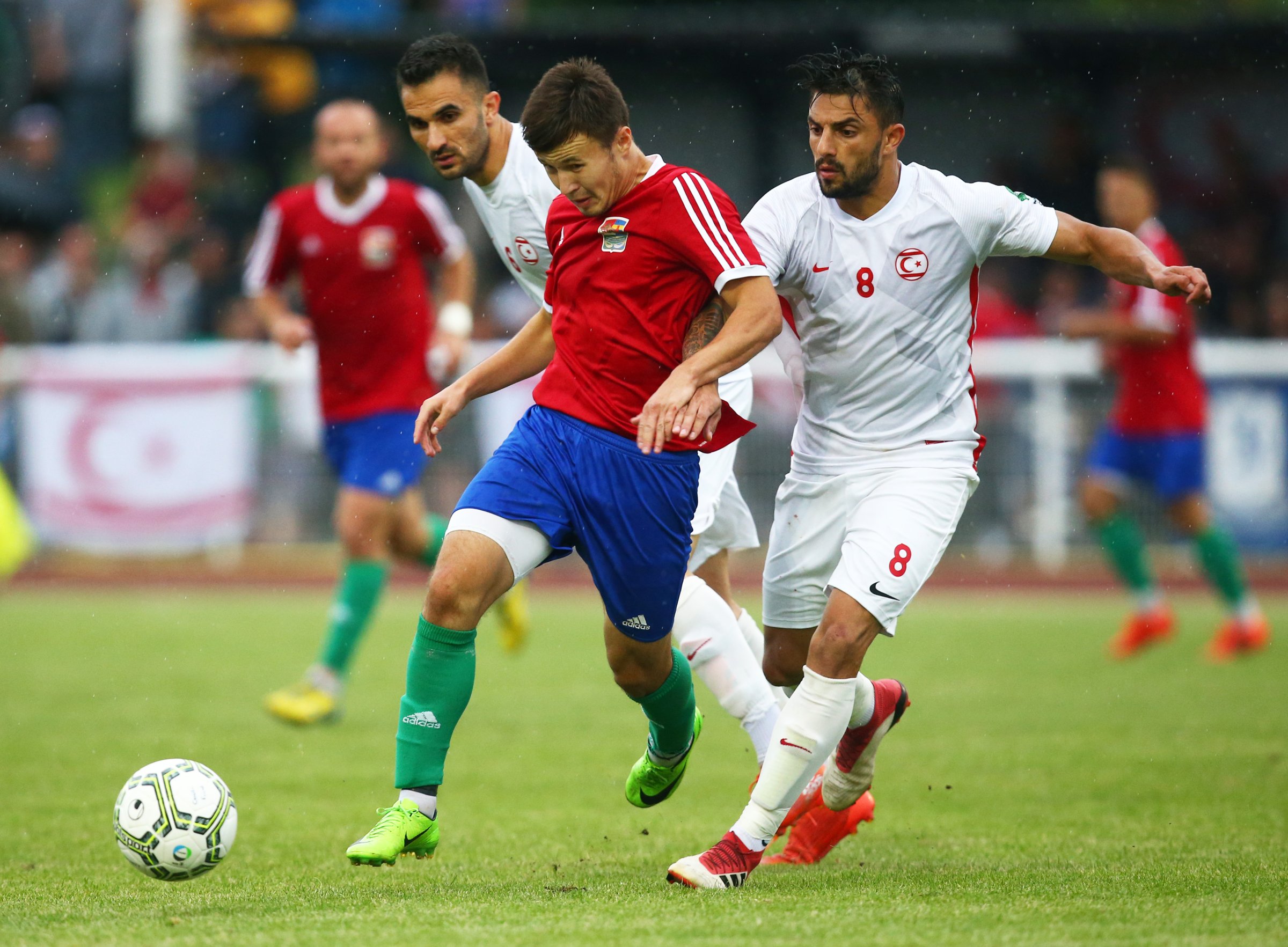
The FIFA World Cup is in full swing this week. But if you prefer your soccer with a side of politics, the real tournament of the summer was the “alternative” World Cup that wrapped up on June 9, pitting teams from the world’s “nations, de-facto nations, regions, minority peoples and sports isolated territories.”
While World Cup teams play for pride, these teams play for recognition. Started back in 2013, the soccer tournament is organized by the Confederation of Independent Football Associations (CONIFA), a “politically-neutral, volunteer-run charity.” CONIFA oversees 47 teams, 16 of which made the cut for this year’s tournament in the U.K.
The participants came from all points of the globe, from the Abkhazians of northwest Georgia to the Matabelelanders of eastern Zimbabwe. Four teams showed themselves to be a cut above the rest: Szekely Land, Padania, Northern Cyprus and tournament champion Karpatalya. Here’s a brief overview of each.
4th Place: Szekely Land
Nestled in Central Romania, Szekely Land is home to hundreds of thousands of ethnic Hungarians. Originally part of Hungary, it was redrawn as part of Romania (twice, actually) in the treaties following both World Wars. The territory’s name comes from the Hungarian dialect they speak known as Szekel.
For decades, Szekely Land inhabitants were treated as second-class citizens by Romania’s communist dictatorship—they were barred from speaking Hungarian in public life, elections of Hungarian officials were invalidated, and cross-border communication was severely limited. Since the early 1990s and the fall of the USSR, the push for autonomy has been spearheaded by the Democratic Alliance of Hungarians in Romania, who seek territorial and cultural autonomy within Romania. Most protests have been peaceful, though a clash in 1990 left five dead.
Unfortunately for them, the Romanian government does not believe their grievances warrant independence. Still, the dream remains alive.
3rd Place: Padania
Padania comprises Italy’s northernmost regions, centered around the Po River Valley. Since Italy failed to qualify for the traditional World Cup, Padania’s 3rd-place finish is likely to be the country’s strongest showing in an international soccer tournament this summer. Padania is notable for another reason too—the group long-pushing for Padania’s break from Rome and the rest of Italy was a party called the Northern League… which recently rebranded itself as the “League” and stormed to second-place in Italian national elections.
For years, the Northern League had derided its Southern countrymen and decried the industrious north’s money being redistributed to the poorer south; those criticisms were muted as the League rose in national prominence. It’s now in an anti-establishment coalition government with the Euroskeptic Five Star Movement, where its strong anti-migration bent has Brussels on its heels. Still, the ambition to secede lives on for some—the “Great North” party is sprung from the remnants of the Northern League.
But it’s difficult to claim unfair treatment when the region’s political champion is now the one calling the shots in Rome. Plenty of others in this tournament would love to have this type of problem.
Runner-Up: Northern Cyprus
Northern Cyprus claimed second place as the losing tournament finalist. Cyprus has been one of the most dangerous flash points between rivals Turkey and Greece for years now—originally under British rule, Cyprus became an independent country in 1960. Today, 78 percent of the population is Greek-Cypriot, and 18 percent is Turkish-Cypriot. Both Turkey and Greece had originally agreed to respect the island’s independence and territorial integrity, but as tensions flared in the 1960s and early 1970s, the military junta in Athens backed an attempted coup by Greek-Cypriots in 1974, triggering an invasion of North Cyprus by Turkish troops. A population exchange between north and south soon followed, as did nearly a decade of failed negotiations. In 1983, North Cyprus declared its independence; to this day, no one besides Turkey recognizes it as an independent country.
Tensions between north and south have been at a relatively low simmer for some time, but so long as the Cyprus issue remains unresolved, it risks becoming a lightning rod for any Greek or Turkish politician seeking a nationalist bump in the polls.
Champion: Karpatalya
And finally, the team of the tournament. Karpatalya is located in the Carpathian mountains in western Ukraine, bordering Poland, Slovakia, Hungary and Romania. It houses nearly 1.2 million people of varying ethnic and religious backgrounds, prominent among them ethnic Hungarians. Amid the mayhem of World War II, the territory—once part of Czechoslovakia—declared independence for 24 hours before being annexed by Hungary. It was subsequently claimed by Ukraine under the banner of the Soviet Union when Europe was being divvied up after the war. When the USSR collapsed in 1991, a referendum saw nearly 8 in 10 Karpathians vote for autonomy… which was promptly dismissed.
What wasn’t dismissed was Karpatalya’s participation in the World Football Cup tournament. Ukraine’s Sports Minister, Igor Zhdanov, took to Facebook to decry the team’s participation: “I call on the Security Service of Ukraine to respond appropriately to such a frank act of sporting separatism. It is necessary to interrogate the players of the team… for the purpose of encroachment on the territorial integrity of Ukraine and ties with terrorist and separatist groups.” A good reminder that sometimes being ignored isn’t the worst thing in the world.
More Must-Reads from TIME
- Donald Trump Is TIME's 2024 Person of the Year
- Why We Chose Trump as Person of the Year
- Is Intermittent Fasting Good or Bad for You?
- The 100 Must-Read Books of 2024
- The 20 Best Christmas TV Episodes
- Column: If Optimism Feels Ridiculous Now, Try Hope
- The Future of Climate Action Is Trade Policy
- Merle Bombardieri Is Helping People Make the Baby Decision
Contact us at letters@time.com